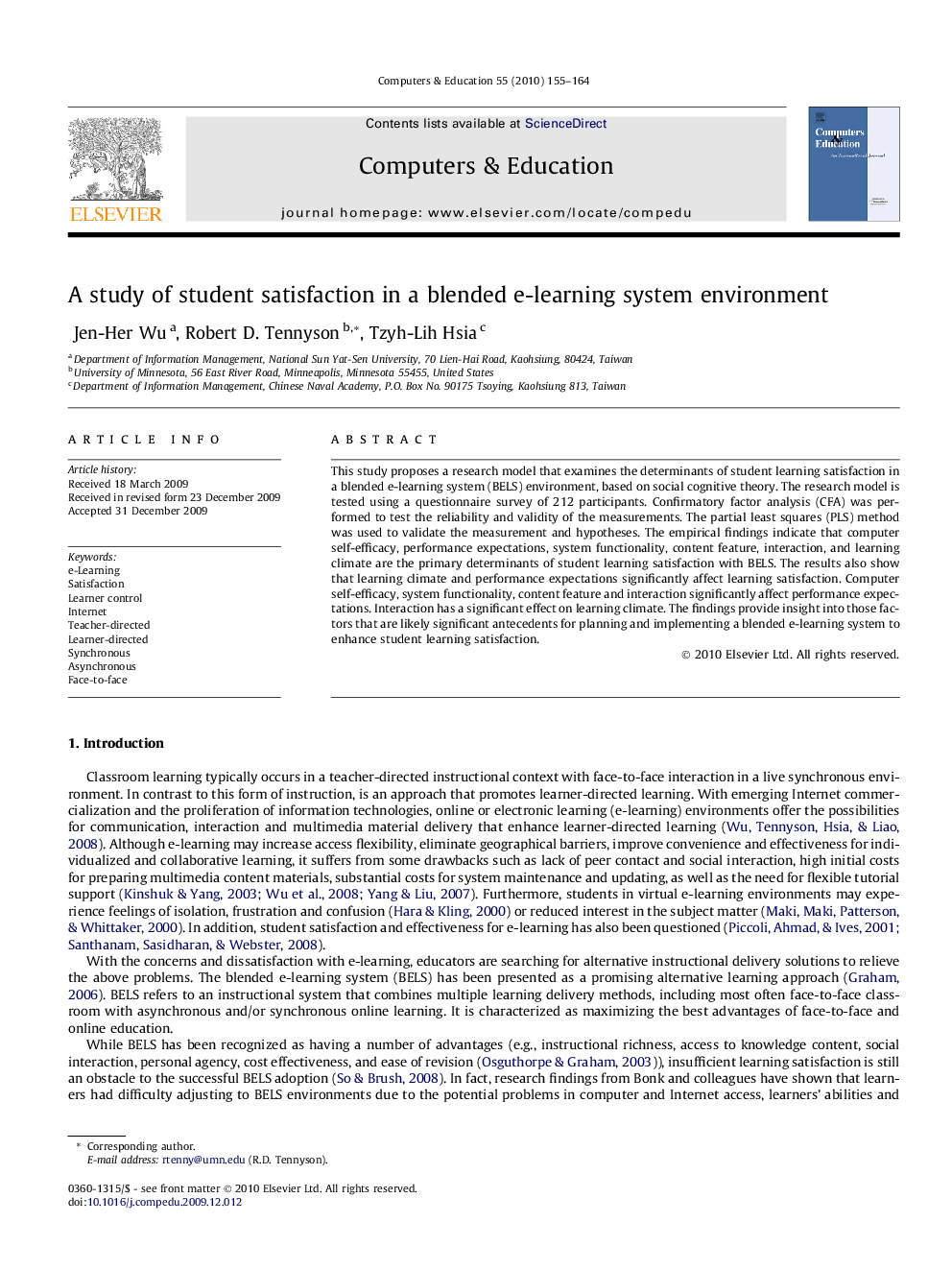| Article ID | Journal | Published Year | Pages | File Type |
|---|---|---|---|---|
| 349514 | Computers & Education | 2010 | 10 Pages |
This study proposes a research model that examines the determinants of student learning satisfaction in a blended e-learning system (BELS) environment, based on social cognitive theory. The research model is tested using a questionnaire survey of 212 participants. Confirmatory factor analysis (CFA) was performed to test the reliability and validity of the measurements. The partial least squares (PLS) method was used to validate the measurement and hypotheses. The empirical findings indicate that computer self-efficacy, performance expectations, system functionality, content feature, interaction, and learning climate are the primary determinants of student learning satisfaction with BELS. The results also show that learning climate and performance expectations significantly affect learning satisfaction. Computer self-efficacy, system functionality, content feature and interaction significantly affect performance expectations. Interaction has a significant effect on learning climate. The findings provide insight into those factors that are likely significant antecedents for planning and implementing a blended e-learning system to enhance student learning satisfaction.
